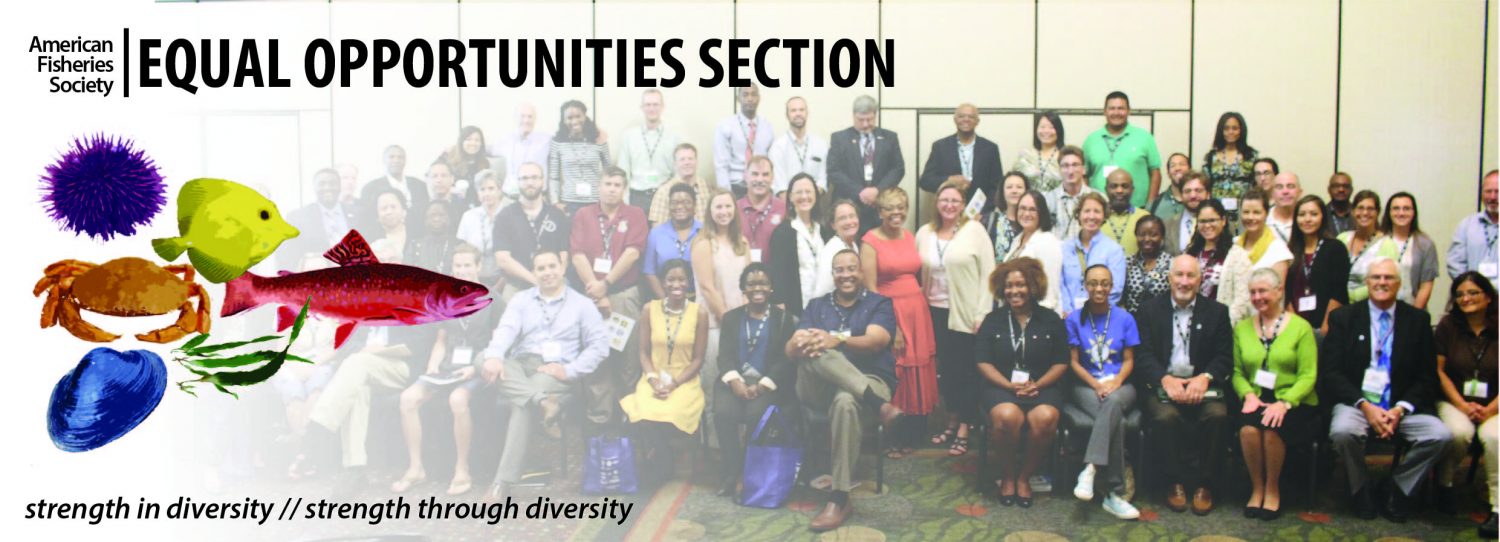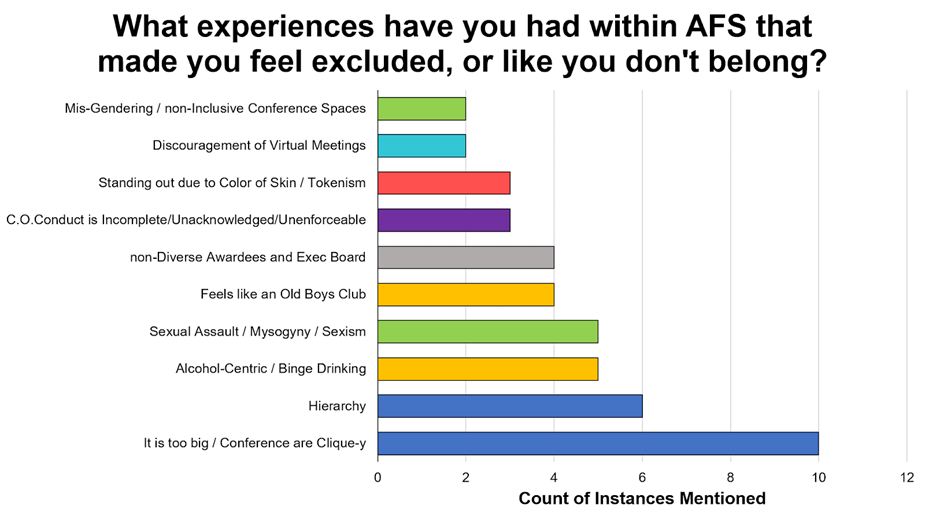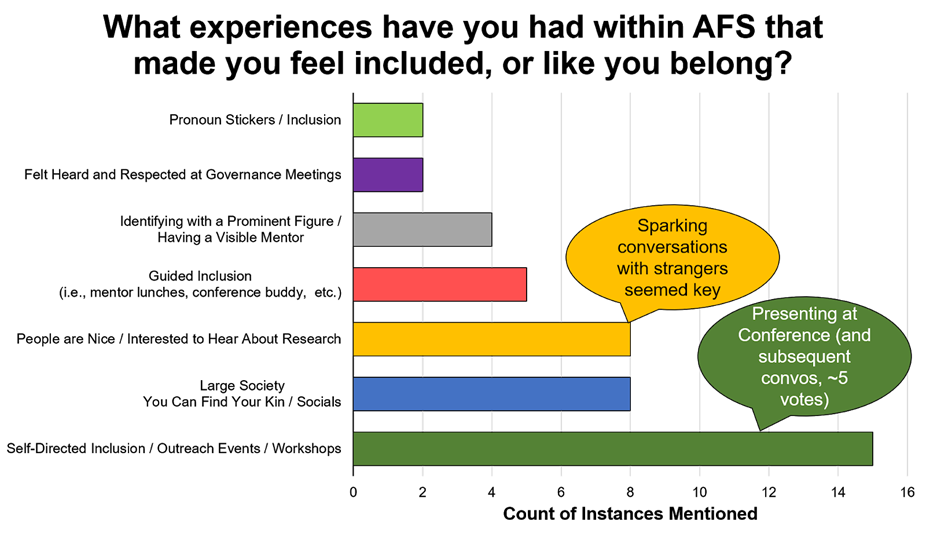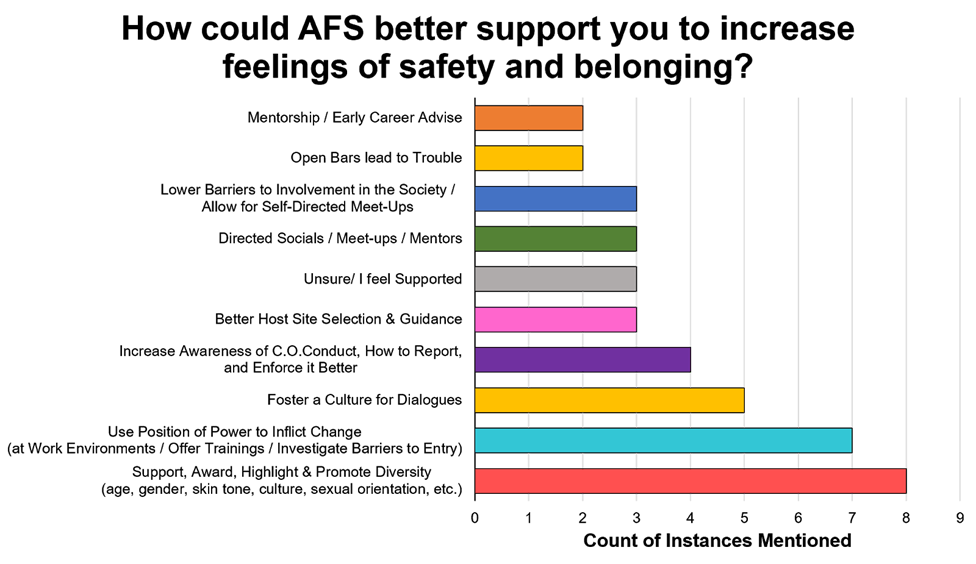The Equal Opportunities Section sent out a survey to its membership as well as the Education Section to ask members who identify as an underrepresented group within the fisheries profession (including but not limited to women, BIPOC, and LGBTQ+) about their experiences with instances of exclusion or like they did not belong as a member of the American Fisheries Society. We received responses from 38 people, whose experiences have been grouped and coded into key words to help summarize the survey responses, some experiences include more than one topic. Experiences that were often listed together share a color, these colors only coordinate within graphs and do not coordinate among graphs. The most common feelings of exclusion referenced that conferences were large and that groups or cliques of people are intimidating to attempt to break into. Often mentioned along with these feelings were that certain research topics, labs, or employers had higher esteem leading to a social hierarchy within the AFS. The second most common experiences described alcohol consumption and feelings of conference spaces being similar to an old boys club often simultaneously. The third most common exclusion experiences related to gender whether sexual assaults, sexism, or instances of misogyny or mis-gendering.
We summarized responses to our question about what people think has made them feel most included within the American Fisheries Society (colors do not coordinate with other graphs). Most commonly, feelings of inclusion centered around people taking the initiative to become
involved in the society through outreach events, workshops, presenting their research, and attending society-directed events like mentor-matching luncheons or socials. Highlighting the need to reduce barriers to involvement in society sponsored events as well as making existing diversity more visible.
When asked how the American Fisheries Society can better support its diverse membership, responses can be summarized as a) increase visibility of diverse groups through various avenues including greater mentorship opportunities, b) use the power of being a large international society to inflict change by offering trainings and being more selective in conference host sites and cities, and c) increase awareness and enforcement of code of conducts both from the society as well from the individual members to better foster constructive dialogues and greater involvement in societal events.
As a member of AFS and the fisheries profession you have the power to make a difference through your actions. Use the buttons below to navigate to actions that individuals and leaders can take to make fisheries more diverse and inclusive!



